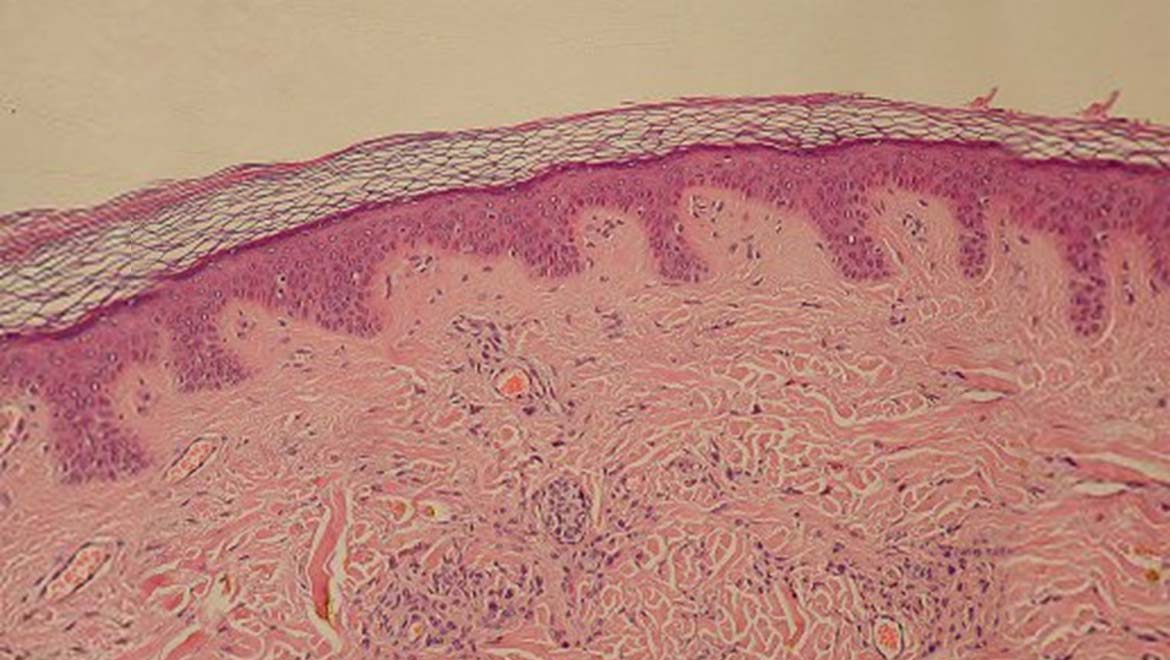Discovering The Largest Organ In Your Body: The Skin
Have you ever wondered what is the biggest organ in your body? Our bodies are intricate systems made up of various organs, each playing a vital role in maintaining our overall health and well-being. Among these organs, one stands out due to its size, functionality, and importance. The largest organ in the human body is none other than the skin. Covering our entire body, the skin acts as a barrier to protect our internal systems and plays a critical role in various physiological processes.
The skin is not just a passive covering; it is a complex organ that performs numerous functions essential for our survival. From regulating temperature to providing sensory information, the skin is constantly working to keep us safe and healthy. Understanding what is the biggest organ in your body involves delving into its structure, functions, and the incredible ways it interacts with the rest of our systems.
In this article, we will explore the fascinating aspects of the skin, its various functions, and why it deserves our utmost care and attention. We will answer common questions about this remarkable organ and provide insight into how to maintain its health and vitality. So, let's get started on this journey to uncover the wonders of the largest organ in our body!
What is the Structure of the Skin?
The skin is made up of three primary layers: the epidermis, dermis, and subcutaneous tissue. Each layer has specific roles and characteristics.
- Epidermis: The outermost layer, providing a barrier and protecting against environmental damage.
- Dermis: The middle layer contains connective tissue, blood vessels, and hair follicles, playing a crucial role in sensation and thermoregulation.
- Subcutaneous Tissue: The deepest layer, which stores fat and helps insulate the body.
What Functions Does the Skin Perform?
Understanding what is the biggest organ in your body goes beyond just its size; it also involves recognizing the myriad of functions it performs:
- Protection: The skin acts as a barrier against pathogens, chemicals, and physical injuries.
- Sensation: It is rich in nerve endings that allow us to feel touch, pain, and temperature.
- Thermoregulation: The skin helps regulate body temperature through sweat production and blood flow.
- Vitamin D Synthesis: Exposure to sunlight enables the skin to produce vitamin D, essential for bone health.
How Does Skin Change Over Time?
As we age, our skin undergoes various changes. Factors such as genetics, environment, and lifestyle choices contribute to how our skin looks and feels throughout our lives:
- Wrinkles: Loss of collagen and elastin leads to sagging and wrinkles.
- Age Spots: Sun exposure can cause pigmentation changes, resulting in age spots.
- Thinner Skin: The skin becomes thinner and more fragile with age.
What Are Common Skin Conditions?
Despite being the largest organ in our body, the skin can be prone to various conditions. Some of the most common skin conditions include:
- Acne: A common condition that affects many, especially during adolescence.
- Eczema: A chronic condition characterized by itchy and inflamed skin.
- Psoriasis: An autoimmune condition that results in red, scaly patches on the skin.
- Skin Cancer: An abnormal growth of skin cells, often caused by excessive sun exposure.
How Can You Take Care of Your Skin?
To maintain the health of the largest organ in your body, it is essential to adopt a comprehensive skincare routine. Here are some tips:
- Hydration: Drink plenty of water to keep your skin hydrated from the inside out.
- Sun Protection: Use sunscreen to protect against harmful UV rays.
- Moisturizing: Apply moisturizers to combat dryness and maintain skin elasticity.
- Healthy Diet: Eat a balanced diet rich in antioxidants to support skin health.
What Should You Avoid for Healthy Skin?
To protect your skin and ensure it remains healthy, avoid the following:
- Smoking: It can accelerate skin aging and lead to a dull appearance.
- Excessive Alcohol: Can dehydrate the skin and cause inflammation.
- Harsh Products: Avoid skincare products with harsh chemicals that can strip the skin of its natural oils.
What is the Connection Between Skin and Overall Health?
The skin reflects our overall health. Changes in the skin can indicate underlying health issues. For instance:
- Rashes or discoloration: These may signal allergies or infections.
- Dry, flaky skin: Can be a sign of dehydration or nutritional deficiencies.
- Sudden changes: Unexplained changes in skin texture or appearance could warrant a visit to a healthcare professional.
Conclusion: Why is Understanding Your Skin Important?
In conclusion, understanding what is the biggest organ in your body is vital for appreciating its complexity and the role it plays in our overall health. The skin is not merely a protective layer; it is a dynamic organ that requires care and attention. By recognizing its functions, potential issues, and necessary care practices, we can ensure our skin remains healthy and vibrant throughout our lives.
Remember, your skin is your body's first line of defense, and taking care of it is an investment in your overall well-being. Embrace your skin, understand its needs, and prioritize its health for a lifetime of benefits!
Understanding The Differences: Dynamic Analysis Vs Static Analysis
Unraveling The World Of Wotakoi: How Many Episodes Are In Wotakoi?
Troubleshooting Your Toshiba TV: What To Do When It Won't Turn On And Shows No Lights

How to support your body's biggest organ YourLifeChoices

Scientists Find Largest “New Organ” In The Body Evolving Science

Mixtuur presents the biggest pipe organs in the world